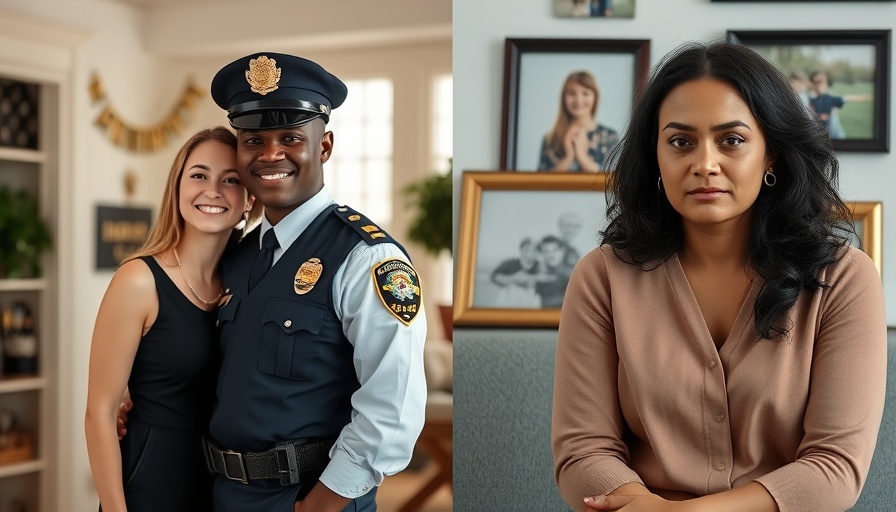
The Fight for Justice: Lacy Lunsford's Battle for Her Husband
As discussions around law enforcement practices become increasingly critical, one voice rises above the noise—a voice that echoes the complex intersections of police duty, ethics, and personal sacrifice. Lacy Lunsford, wife of convicted officer Brad Lunsford, has taken a stand not just for her husband’s freedom but for the broader implications of policing in today's society.
The Implications of Officer Lunsford's Conviction
The case of Officer Brad Lunsford has drawn significant attention, particularly regarding the decisions made under pressure that police officers often face. Lacy's poignant words, “If you have to make the decision to save your life, now you can be charged,” highlight a critical concern among law enforcement officers about the ramifications of their actions in high-stress situations. This reflects a growing anxiety among officers regarding use of force policies and the potential for criminal charges arising from life-or-death decisions.
Public Safety and Community Trust: A Fragile Balance
In a climate where public safety is paramount, the events surrounding Officer Lunsford’s case raise critical questions about police ethics and accountability. Law enforcement officials and policymakers must navigate the delicate balance between maintaining community safety and ensuring the trust of the public they serve. As Lacy Lunsford fights for her husband's appeal, the underlying message challenges us to reconsider what it means to trust law enforcement. Is this trust compromised when officers are held to a stringent standard that might put their personal safety at risk?
Impacts on Officer Wellness and Morale
The psychological toll on officers facing trial for their actions can lead to severe consequences, including job-related stress and officer burnout. The pressure not only affects the officers involved but can ripple through departments, undermining policing morale and the effectiveness of police training programs. Policymakers must recognize the vital role of mental health support, not only for those potentially facing hardship but also for general officer wellness.
Insights and Future Predictions for Law Enforcement
As the Lunsford case unfolds, it serves as a case study in the future of policing strategies. What will be the long-term implications of this incident on police technology, crisis intervention strategies, and community engagement efforts? Future predictions suggest that enhanced training in crisis management, effective communication strategies, and an adaptive approach to crime prevention will become increasingly crucial in law enforcement. Developing tools that promote ethical decision-making while ensuring officer safety will be essential in shaping public trust.
A Call for Reform and Innovation in Policing
The plight of Lacy Lunsford conveys a powerful narrative about the need for reforms in law enforcement policies. As society grapples with calls for social justice and police reform, case studies like Brad Lunsford’s can catalyze necessary dialogue and illustrate the urgent need for innovation in policing. By fostering partnerships between law officers and communities, the potential for healing and trust-building may very well begin with understanding the challenges that both face.
In conclusion, Lacy Lunsford’s quest is not solely about her husband—it symbolizes a larger movement towards more humane policing practices, enhanced officer wellness, and renewed trust in law enforcement. As we reflect on these issues, it’s clear that fostering community partnerships and supporting innovative policing methods are vital for a more equitable future.
 Add Row
Add Row  Add
Add 

 Add Element
Add Element 




Write A Comment